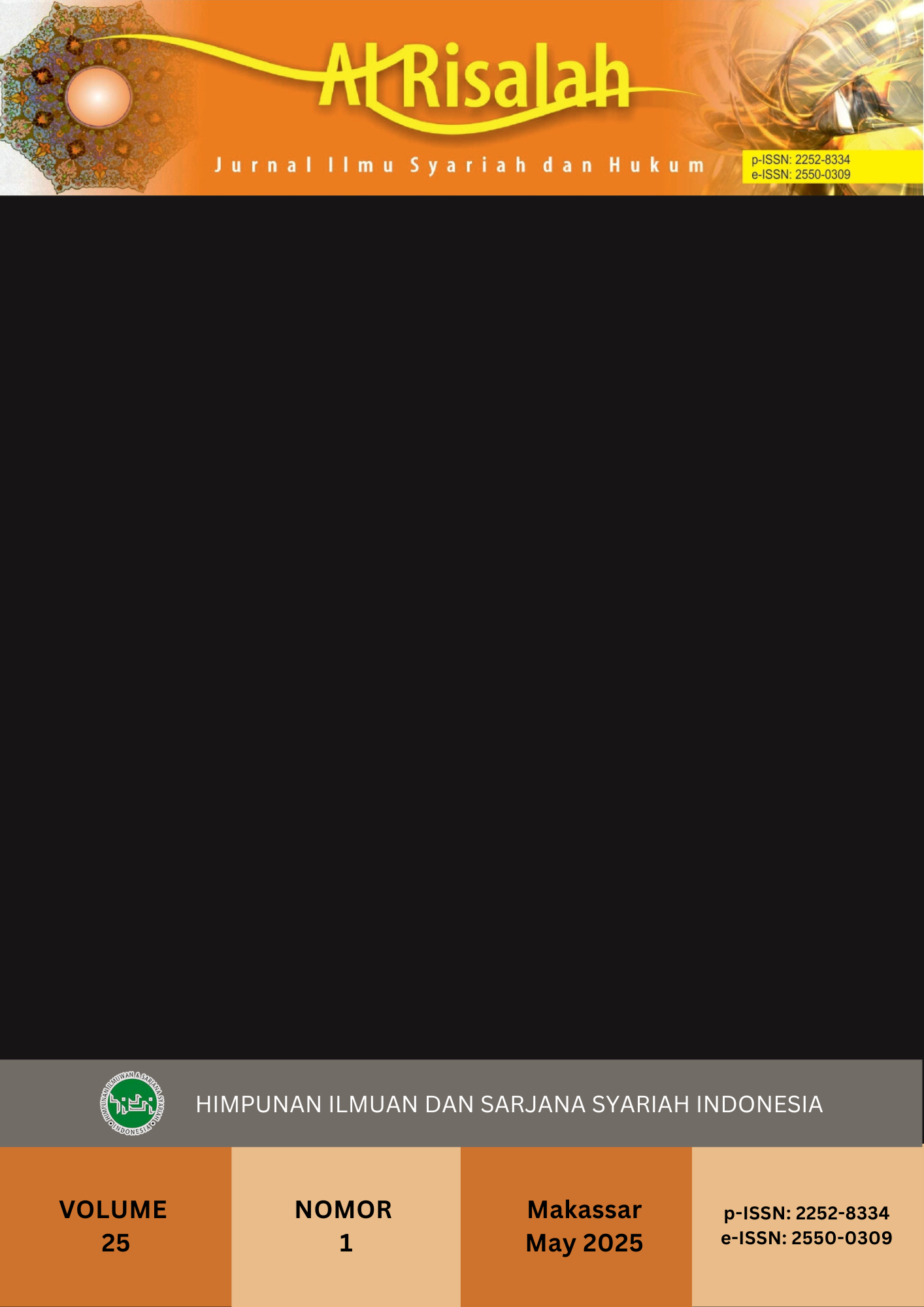Judicial Analysis of Defendant Acquittal in Human Exploitation Cases: A Study on Evidentiary Principles in Criminal Law
Abstrak
This research analyzes the judicial considerations in Decision Number 555/Pid.Sus/2023/PN STB, which acquitted the former Regent of Langkat, TRPA, in a human exploitation case. The study evaluates whether the judges' reasoning aligns with the legal provisions of Law Number 21 of 2007 on the Eradication of Human Trafficking and Law Number 39 of 1999 on Human Rights. This study employs a normative juridical approach, focusing on court decisions, statutory regulations, and relevant legal theories in criminal law and human rights. The analysis is conducted through doctrinal research, examining the legal reasoning behind the verdict and its conformity with established legal principles. The findings indicate that the court ruled the indictment’s elements were not legally and convincingly proven. The judges based their decision on the principle of presumption of innocence, emphasizing the lack of sufficient evidence to establish the defendant’s direct involvement. The absence of mens rea (malicious intent), material benefits from exploitation, and direct participation in acts of violence further supported the acquittal. Additionally, accountability for the crime had already been attributed to another perpetrator in a prior ruling. This study contributes to the discourse on evidentiary standards and judicial reasoning in human exploitation cases. It offers a critical assessment of the challenges in prosecuting high-ranking officials and the legal gaps that may affect accountability in similar cases. The findings highlight the need for a more robust evidentiary framework in human exploitation trials, particularly in cases involving structural actors. The study suggests that legal reforms and enhanced prosecutorial strategies are necessary to prevent loopholes that could hinder justice in crimes of exploitation and human trafficking.
Referensi
Aswandi, Bobi, and Kholis Roisah. “Negara Hukum Dan Demokrasi Pancasila Dalam Kaitannya Dengan Hak Asasi Manusia (HAM).” Jurnal Pembangunan Hukum Indonesia 1, no. 1 (2019): 128–45.
Cheung, Anne. “Doxing and the Challenge to Legal Regulation: When Personal Data Become a Weapon.” The Emerald International Handbook of Technology-Facilitated Violence and Abuse, 2021, 577–94. https://doi.org/10.1108/978-1-83982-848-520211041.
Christiaan, John Abraham, Didit Yuliantono Adi, Tri Hananto, Stefanus Dully, and Jerimias Manuhutu. “Penerapan Teori Condito Sine Qua Non Dalam Prinsip Apologetika Kristen,” 2023.
CNN. “MA Batalkan Vonis Bebas Eks Bupati Langkat Di Kasus Kerangkeng Manusia Baca Artikel CNN Indonesia ‘MA Batalkan Vonis Bebas Eks Bupati Langkat Di Kasus Kerangkeng Manusia.’” CNN, November 2024.
Irawadi, Lalu, Rodliyah, and Muhammad Natsir. “Motive Element in Planed Murder Criminal Act According to Article 340 KUHP.” International Journal of Scientific Research and Management 7, no. 11 (2019): 200–207. https://doi.org/10.18535/ijsrm/v7i11.lla01.
Kontras. “Surat Terbuka Desakan Kasasi Terhadap Kasus Tindak Pidana Perdagangan Orang Oleh Bupati Nonaktif Terbit Rencana Perangin Angin.” Kontras, July 2024.
Korua, Ryvaldo Vially. “Kajian Hukum Putusan Bebas (Vrijspraak) Dalam Perkara Pidana.” Lex Crimen 9, no. 4 (2020).
Mahmud Marzuki, Peter. “Penelitian Hukum.” Jakarta: Kencana Prenada Media 55 (2005).
Milono, Yennie K, and Lilik Prihatini. “Perbedaan Pendapat Hakim (Dissenting Opinion) Terhadap Putusan Lepas Dari Segala Tuntutan Hukum Tindak Pidana Korupsi Bantuan Likuiditas Bank Indonesia.” PALAR (Pakuan Law Review) 9, no. 1 (2023): 26–39.
Novita, Novita, Endas Trisniwati, and Yeyet Saputra. “Penegakan Hukum Terhadap Tindak Pidana Eksploitasi Anak.” MORALITY: Jurnal Ilmu Hukum 8, no. 2 (2022): 209–22.
Palmer, Gill, and Tamilselvi Kandasaami. “Gender in Management: A Sociological Perspective.” The International Journal of Accounting and Business Society 5, no. 1 (1997): 67–99.
Putri, Della Angelica. “Relativisme Hukum Terhadap Kasus Perbudakan Dan Merendahkan Martabat Oleh Bupati Langkat.” In Seminar Nasional-Kota Ramah Hak Asasi Manusia, 2:20–30, 2022.
Saputri, Atha Difa, and John Lee. “Law Enforcement of Corruption Crimes in the State-Owned Enterprises Sector in Indonesia.” Law Research Review Quarterly 9, no. 1 (2023). https://doi.org/10.15294/lrrq.v9i1.65725.
Soemarsono, Maleha. “Negara Hukum Indonesia Ditinjau Dari Sudut Teori Tujuan Negara.” Jurnal Hukum & Pembangunan 37, no. 2 (2007): 300–322.
Solahuddin. Kitab Undang-Undang Hukum Pidana, Acara Pidana & Perdata (KUHP, KUHAP & KUHPdt). 5th ed. Jakarta: Visimedia, 2010.
Sulubara, Seri Mughni, T Saiful Basri, and Iskandar Iskandar. “Analisis Konstitusional Terhadap Perlindungan Hak Asasi Manusia Dalam Sistem Hukum Indonesia.” Jurnal Kabar Masyarakat 2, no. 4 (2024): 198–211.
Susilawati, Susi, Baliana Amir, Muhammad Ikbal, Rafika Nur, and Sitti Fatimah Maddusila. “Manifestations of Gender Injustice in Divorced Marriages: The Kabalutan Tradition.” Jambura Law Review 5, no. 1 (2023): 136–55. https://doi.org/10.33756/jlr.v5i1.17722.
Tibaka, Leli, and Rosdian Rosdian. “The Protection of Human Rights in Indonesian Constitutional Law after the Amendment of the 1945 Constitution of the Republic of Indonesia.” FIAT JUSTISIA:Jurnal Ilmu Hukum 11, no. 3 (2018): 266. https://doi.org/10.25041/fiatjustisia.v11no3.1141.
Undang - Undang Nomor 39 Tahun 1999 Tentang Hak Asasi Manusia (1999).
##submission.copyrightStatement##
##submission.license.cc.by4.footer##

